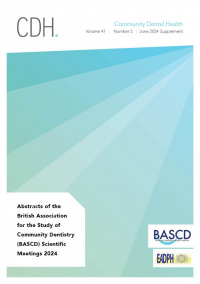A Preschool based intervention to reduce Early Childhood Caries in a District of Sri Lanka: A Quasi-experimental Study
A Preschool based intervention to reduce Early Childhood Caries in a District of Sri Lanka: A Quasi-experimental Study
Abstract
Objective: Early Childhood Caries (ECC) is prevalent among preschool children. The aim was to assess the effectiveness of an intervention to modify family-level determinants of caries (i.e. maternal parenting style, oral health-related self-efficacy and oral health-related knowledge) via preschool teachers, to improve the child level determinants of ECC (dietary sugar consumption, oral hygiene pattern, dental attendance pattern). Basic research design: Quasi-experimental study. Setting: Preschools in Gampaha District, Sri Lanka. Participants: Preschoolers and their mothers/caregivers. Interventions: Delivered via preschool teachers to 200 children and their caregivers. Main outcome measures: Maternal parenting style, oral health related self-efficacy and oral health related knowledge, parentally reported dietary sugar consumption, oral hygiene pattern, dental attendance pattern and ECC. Results: Maternal oral health related knowledge, authoritative parenting, authoritarian parenting and oral health related self-efficacy, maternally reported sugar consumption, sweetened drink consumption, tooth brushing frequency, dental visiting during the past six months and receipt of treatment better in the intervention group than the control group post-intervention. Conclusions: The intervention shows potential in modifying family level determinants of ECC. Keywords: dental caries, determinants, behaviours




